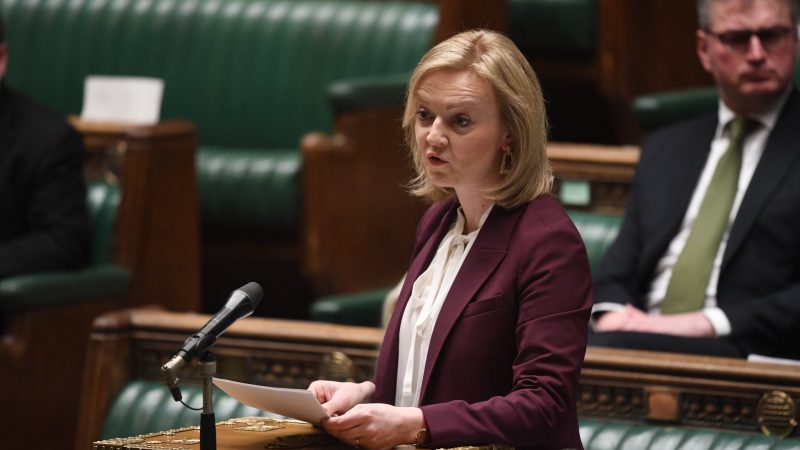
Labour has said that Liz Truss presided over a £235m cut to the Environment Agency that left monitoring staff in the “low hundreds” and “doubled sewage discharge”.
According to analysis of official figures, raw sewage discharge more than doubled from 14.7 per overflow in 2016 to 29.3 in 2021 after the Conservative leadership candidate cut £235m in “efficiency savings” from the Environment Agency’s budget while serving as the Environment, Food and Rural Affairs Secretary.
Labour’s Jim McMahon argued that the decision showed “her lack of foresight” and “care for the detail” and said his party would “address the challenges in our water supply system by strengthening regulation and ensuing that bosses of water companies are held to account legally and financially for their negligence”.
“Under the Tories, the country is facing a crisis in our water supply. Our water infrastructure is at bursting point with billions of litres of water being wasted every day and raw sewage being dumped into our waters,” the Shadow Environment, Food and Rural Affairs Secretary said.
The Environment Agency works with water companies to ensure they are closely monitoring and reporting back on their discharge activity. The government cut £80m from sewage monitoring as part of its £235 budget reduction in 2016.
The volume of raw or partially treated sewage pumped into the UK’s rivers and coastal waters has caused outrage in recent years. Water companies have been criticised for not investing money back into infrastructure.
A spokesperson for No 10 said earlier this week that it is the “duty” of water firms to put customers before shareholders, adding: “We have been clear that the failure of water companies to adequately reduce sewage discharges is completely unacceptable.”
The £235m Environment Agency cut overseen by Truss included a £24m reduction in a government grant for environmental protection, including surveillance of water companies to prevent the dumping of raw sewage, between 2014-15 and 2016-17, according to a report by the National Audit Office.
The figure represents almost a quarter of the funding cut from this area between 2010, when the grant stood at £120m, and 2020, by which time it had fallen to £40m.
Research recently found that 24% of sewage overflow pipes at popular seaside resorts in England and Wales have monitors that are faulty or do not have monitors at all, which means people could be unknowingly swimming in human waste.
MPs rejected an amendment last year that would have legally required water companies to reduce the amount of sewage discharged into UK waterways. 265 Tories voted against the Lords amendment to the environment bill, sparking a backlash from campaigners and activists.
The amendment would have required companies to “take all reasonable steps to ensure untreated sewage is not discharged from storm overflows”. The government removed this change with the backing of 265 votes to 202.
Conservative Rebecca Pow claimed at the time that the move would cost between an £150bn and £660bn and the minister argued that overflows “should potentially always remain” as an emergency measure in the event of flooding
Labour voted against the government. Luke Pollard told parliament that the party would have “sympathy” for the government if discharges only happened in “extreme circumstances” – but instead said the reality was that they are a “daily, regular, continual occurrence” and that this is “unacceptable”.




More from LabourList
Delivering in Government: your weekly round up of good news Labour stories
‘Forgotten fathers: pipefitters, plumbers and the paternity pay gap’
‘How can Britain build peace for Palestinians without owning its own past?’